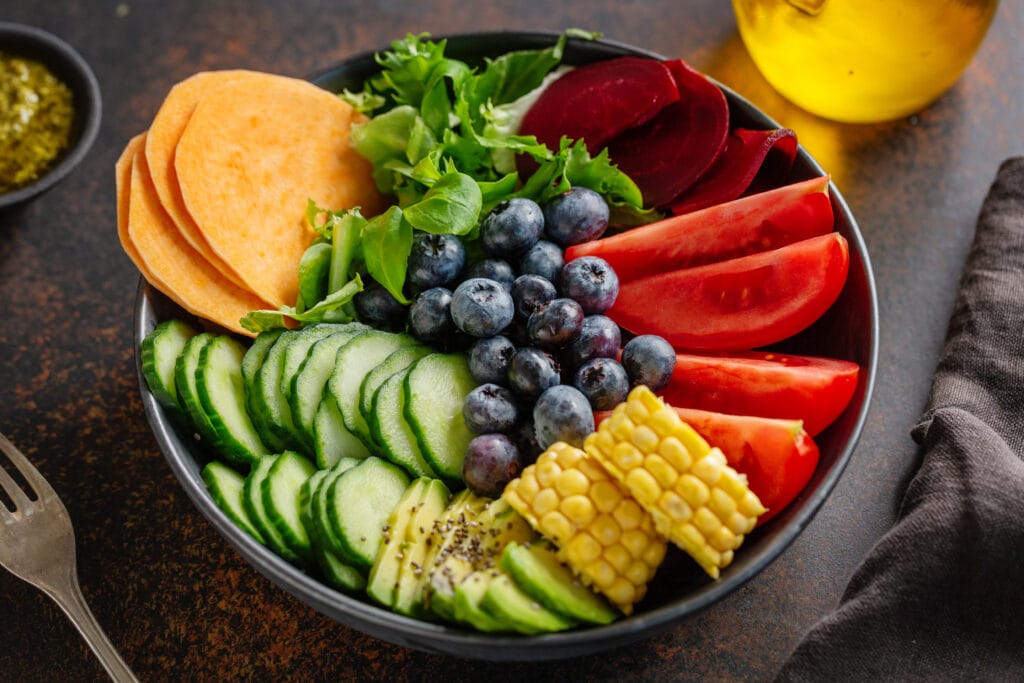Same topic
The topic "Memory loss in the elderly" helps you learn about related content and topics.
Together we bring better healthcare solutions to the elderly.
-
Tips for Caring for the Elderly with Dementia
-
Intermediate Stage Dementia | Living with and Caring for
-
Early stages of dementia | living with and caring for
-
Improve your memory and mental health with 10 games
-
Treatment of memory loss in the elderly
-
Diet to prevent memory loss in old age
-
Signs of Alzheimer's disease and care tips
-
Distinguishing between age-related memory loss and dementia
-
Stages and Symptoms of Alzheimer's Disease
-
Causes of Alzheimer's disease and risk factors
What's in the article
Can diet help prevent memory loss in old age?
Job eat a certain diet may affect biological mechanisms: such as oxidative stress and inflammation – one of the causes cause dementia in the elderly.
Increase nutrients with anti-inflammatory, antioxidant properties, which may protect the brain. Inhibit beta-amyloid deposition, or improve cell metabolism.
Or depending on the subject, Diet can only indirectly influence other risk factors for the disease
- For example, the typical Western diet increases the risk of cardiovascular disease and diabetes, which may contribute to faster brain aging.
- In addition, several studies have focused on the relationship between gut bacteria and aging-related processes.
The important role of physical activity and exercise, which are closely linked to diet, heart health and brain health must also be considered.

The Mediterranean Diet and MIND
Before starting any dietary changes, it is important to talk to a nutritionist for a personalized plan based on your health history and medical conditions.
What is the Mediterranean diet?
Mainly includes
- Fruits, vegetables
- Whole grains, beans
- Fish and other seafood
- Unsaturated fats like olive oil
- It is important to use less red meat, eggs and sweets.

DASH Diet
Dietary Approaches to Stop Hypertension – is the most popular nutritional approach in the world, for hypertensive patients and people who want to lose weight. DASH is built on the following four criteria:
- Eat lots of fruits and vegetables, low-fat dairy products
- Increase your intake of fish, poultry, nuts, and whole grains.
- Minimize intake of saturated fat, trans fat and cholesterol
- Limit salt, sweets, carbonated drinks and red meats.
MIND Diet
Mediterranean–DASH Intervention for Neurodegenerative Delay – is a combination of diet Mediterranean and diet DASH.
Similar to the Mediterranean diet, the MIND diet has
- Vegetables, especially green leafy vegetables
- Berries on other fruits
- Cereals; beans; nuts
- One or more servings of fish weekly; and olive oil.
- It also limits intake of red meat, sweets, cheese, butter/margarine, and fast/fried foods.
Observations of over 900 older adults without dementia showed:
Strict adherence to the MIND diet is associated with reduce the risk of Alzheimer's disease and the rate of memory loss is slower.
Results from studies
Based on people who followed the Mediterranean or MIND diet
- In March 2023, a study of about 600 older adults who died at an average age of 91 found less evidence of Alzheimer's pathologies.
- In an observational study of 116 cognitively normal adults, thick cortex Additionally, these brain regions shrink in people with the disease, so having thicker brain regions may provide cognitive benefits.
- A subsequent observational study found lower glucose metabolism and higher beta-amyloid protein levels in people who did not adhere closely to the Mediterranean diet.
- An analysis of diets found that, after an average 4.5 years, people who strictly follow the MIND diet have a lower incidence of Alzheimer's disease 53% reduction compared with those who did not adhere closely.
- In a similar study, following the MIND diet was associated with a significant slowing of cognitive decline over an average of nearly 5 years.
What do we know about individual foods and supplements?
About each type of food

- Many types of food – blueberries, green leafy vegetables, and curcumin (found in the spice turmeric) are thought to have anti-inflammatory, antioxidant, or other properties that may help protect the brain. However, to date, there is no evidence that eating or avoiding a particular food can prevent Alzheimer's disease or dementia in older people.
- A recent study found that a molecules in green tea breaks up tau protein clumps, which build up in the brain in Alzheimer's disease.
- Based on older adults' reports of their eating habits, scientists found that eating one serving Green vegetables every day like spinach or kale have been linked to slower cognitive decline.
- Besides, diet that includes regular fish consumption linked to higher cognitive function. Another recent study in mice found that consuming too much salt increases levels of the protein tau – found in the brains of people with Alzheimer’s disease.

What about vitamins and supplements?
At this time, no vitamins or supplements are recommended to prevent dementia in old age.
Although observational and clinical trial researchers considered see if certain over-the-counter vitamins and supplements, Includes vitamin B, E and ginkgo. But despite the possible benefits to brain health, overall the evidence is weak because many studies are too small or too short to conclude whether any vitamin or supplement has been shown to prevent disease.
However, a 2023 study found that multivitamins helped improve memory test scores in older adults compared with participants taking a placebo.
Additionally, a 2022 study found that participants who took a daily multivitamin performed better on a variety of cognitive tests and had significant improvements in memory and executive function (attention, planning, and organization) compared to those who did not take a daily multivitamin. However, these findings are still preliminary and more research is needed.
In addition to applying appropriate diets and nutritional regimens, home care is still a necessary and indispensable condition to help prevent dementia in the elderly. Regular, careful care and close monitoring are still the best methods to help the elderly reduce the risk of disease.

Source National Institute on Aging
Are you looking for home or facility-based care?
Hio is a pioneering platform providing comprehensive and personalized elderly care services at home and medical facilities. No additional costs, change caregivers without additional costs, immediate refund if customers are not satisfied, care information is continuously updated to ensure peace of mind for families.




